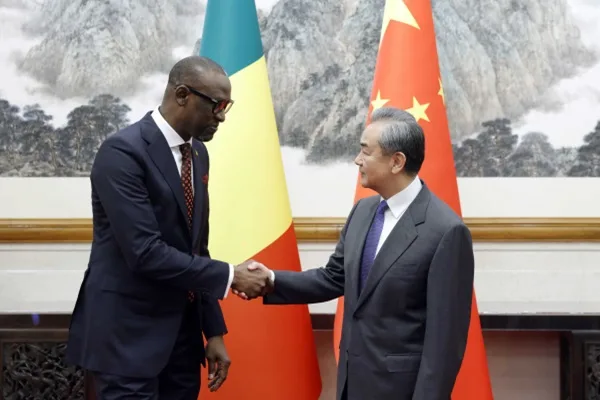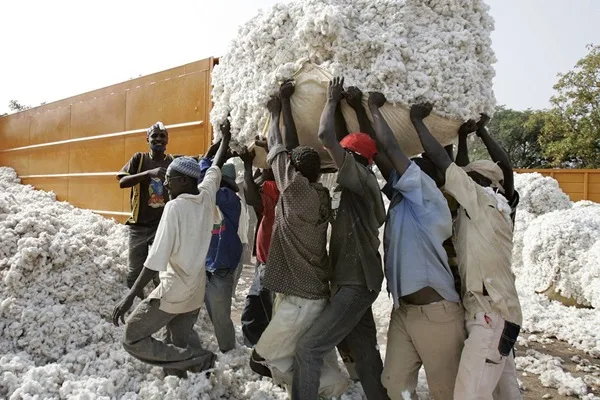Mali and China Explore More Local Value Addition for Cotton
Malian External Affairs Minister (EAM) Abdoulaye Diop led a delegation on an official visit to China from 6 to 10 December 2023. Among the delegates were Finance Minister Alousseni Sanou, Industry and Commerce Minister Moussa Diallo.
After ending its defense cooperation with France, Mali turned to China for military cooperation. Currently, China sells armored vehicles, firearms, tanker trucks and ambulances to Mali. Mali also buys military planes from Russia and drones from Turkey.
Mali is rich in mineral and forestry resources. From ancient times, Mali is known for its gold mines and today, Mali is still the 3rd largest gold producer in Africa.
“During past decades, Mali has attracted the interest the interest of large firms from the West, without seeing any positive impact on the living conditions in Mali, which remains one of the poorest countries in the world.”
University of Nouakchott Professor Seyid ould Abah

During the series of meetings with the Chinese side, two flagship projects in the textile sector were promoted. The Malian delegation presented on two spinning mills — one in Bamako and the other in Koutiala — which require a financing of FCFA 144 billion (EUR 220M).
The Mali Textile Development Company undertook the feasibility studies and concluded that the projects are viable. According to the report, the two plants will sustain some 5,000 local jobs in Mali when fully operational. More importantly, it will contribute for the cotton industry to upgrade to a higher level in the global value chain for textile.
In addition to meeting his counterpart Chinese EAM WANG Yi, EAM Diop also had a working session with the China Development Bank in a bid to secure financing for the abovementioned projects. The CDB has financed mining, telecom and other agribusiness projects in Mali. In particular, it financed the N’Sukala sugar estate and a pharma plant in Banancoroni.
During the talks, the Malian side underscored its aspiration to foster Local Value Addition (#LVA) of cotton. Currently, only 1% of cotton grown in Mali is transformed industrially. As a new target, Mali wishes to convert at least 10% of cotton into thread. Eventually, Mali plans to develop a vertically integrated textile industry from cotton to clothes.

In 2012, China built an Agricultural Research Centre at a cost of FCFA 4.4 billion in Baguinea in a bid to modernize agriculture and foster sustainable agribusiness.
In terms of bilateral trade, China is the top partner of Mali, ahead of traditional ally France. However, the balance of trade is heavily in favor of China which accounts less than 1% of all exports from Mali. France does not import much from Mali as well; it is South Africa and Switzerland who are the top destinations for Malian exports.
The Malian delegation also had a meeting with the Chinese Deputy Minister TANG Wenhong from the Ministry of Commerce. Among the other cooperation projects, the upgrade of the hospital and the construction of a new modern parliament building.

